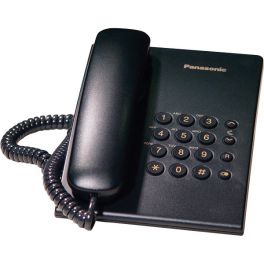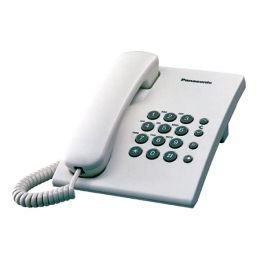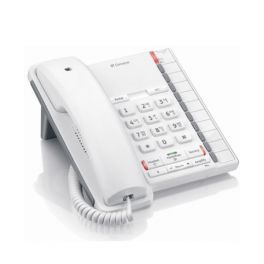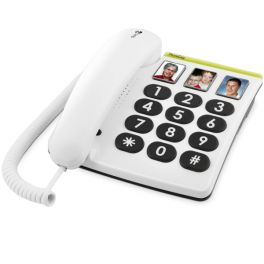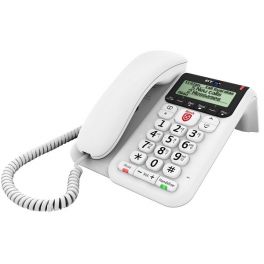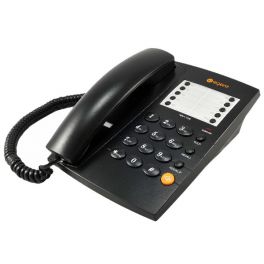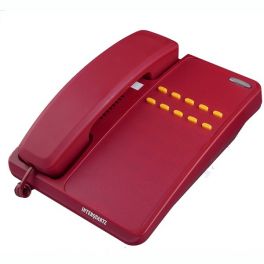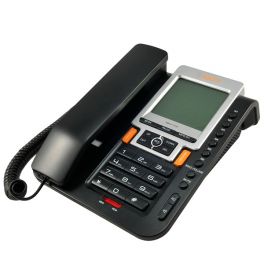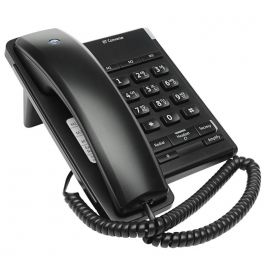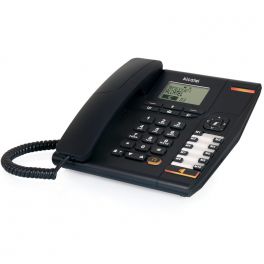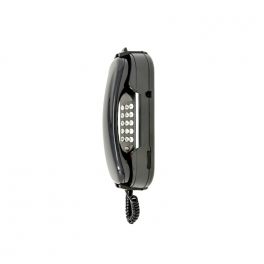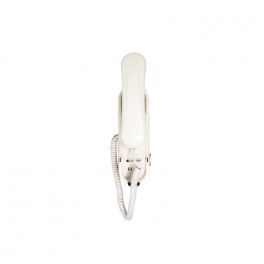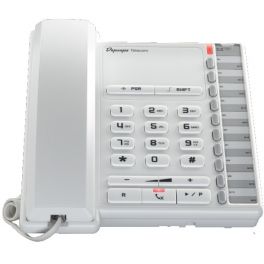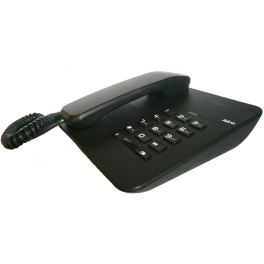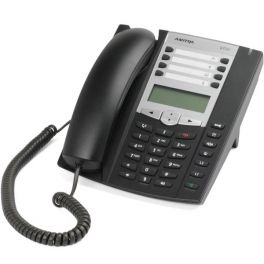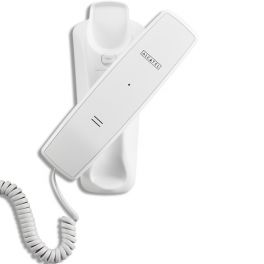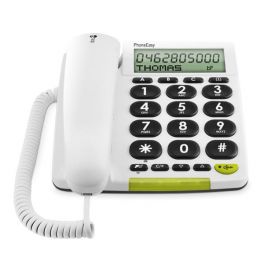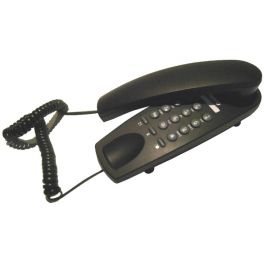
Analogue phone
Effortless Communication, Powered by an Analogue Phone
Are you looking for a telephone to connect to your analogue line? Analogue corded telephones are one of the most widely used in companies and are still a safe bet! In fact, it's often the easiest to use, once plugged into your Telecom telephone socket or your traditional switchboard, it's ready to use straight away.
The analogue telephone is compatible with any PABX switchboard. Extremely economical, they can be upgraded depending on the features offered: hands-free, equipped with a headset socket, a screen or an answering machine, with large keys, monobloc for wall mounting...Onedirect offers you the widest range of professional analogue telephones below, to meet all your needs.

-
Ref: KXTS500Compare
-
Ref: KXTS500BCompare
-
Ref: BT2200WUKCompare
-
Ref: DM331PHCompare
-
IconBest Seller
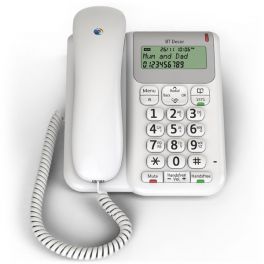
BT Decor 2200 Telephone - White
IN STOCK5 of 6 Reviews£25.00£24.99 £29.99 Incl. VATRef: BTDEC2200WUKCompare -
Ref: BTDEC2600WUKCompare
-
Onedirect Recommends
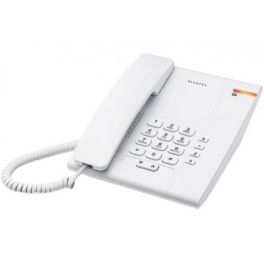
Alcatel Temporis 180 - White
IN STOCK4.6 of 12 Reviews£25.00£19.99 -20% £23.99 Incl. VATRef: ALT180IVCompare -
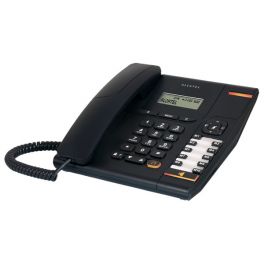
Alcatel Temporis 580 Black Analogue Business Phone
IN STOCK4.3 of 43 Reviews£50.00£30.99 -38% £37.19 Incl. VATRef: ALT580Compare -
Onedirect Recommends

Depaepe HD2000 Urgence 1 Memory - Red
IN STOCK4.9 of 14 Reviews£203.00£151.99 -25% £182.39 Incl. VATRef: DEHD21RCompare -
Onedirect Recommends
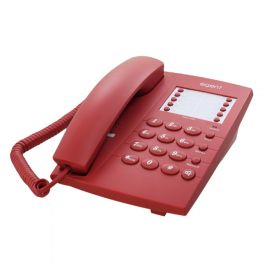
Agent 1000 Basic Telephone - Red
IN STOCK4.6 of 5 Reviews£29.99£24.99 -17% £29.99 Incl. VATRef: AG1000RUKCompare -
Onedirect Recommends
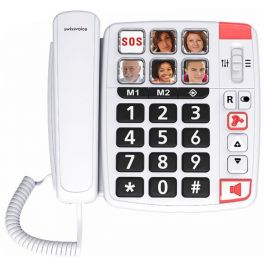
Swissvoice Xtra 1110
IN STOCK4.6 of 7 Reviews£38.49£32.99 -14% £39.59 Incl. VATRef: SWXTRA1110Compare -
Ref: AG1000BUKCompare
-
Ref: IQ9281PUKCompare
-
Ref: DEHDRCompare
-
Onedirect Recommends
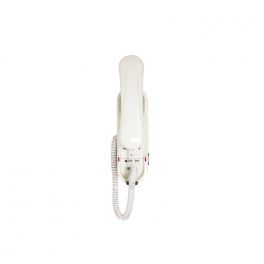
Depaepe HD2000 Keypad - White
IN STOCK4.7 of 10 Reviews£96.00£71.99 -25% £86.39 Incl. VATRef: DEHD2IVCompare -
Ref: AG1100UKCompare
-
Ref: BT2100BUKCompare
-
Onedirect Recommends

Depaepe HD2000 Keypad - Red
IN STOCK4.8 of 4 Reviews£96.00£71.99 -25% £86.39 Incl. VATRef: DEHD2Compare -
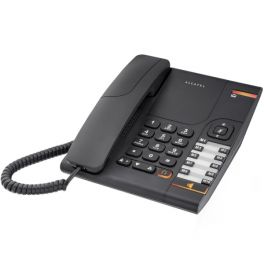
Alcatel Temporis 380 Black Analogue Deskphone
IN STOCK4.7 of 48 Reviews£38.00£24.99 -34% £29.99 Incl. VATRef: ALT380Compare -
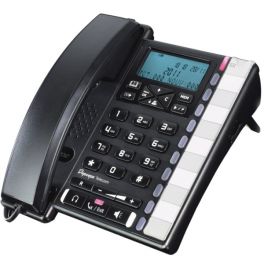
Depaepe Premium 300 Analogue Desktop Phone (Black)
IN STOCK4.4 of 43 Reviews£44.00£32.99 -25% £39.59 Incl. VATRef: DEPREM300Compare -
Ref: ALT880Compare
-
Ref: DEHD2ACompare
-
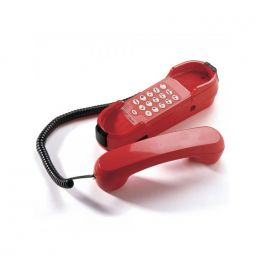
Depaepe HD2000 Urgence 3 Memory - Red
IN STOCK4.9 of 12 Reviews£229.00£171.99 -25% £206.39 Incl. VATRef: DEHD33RCompare -
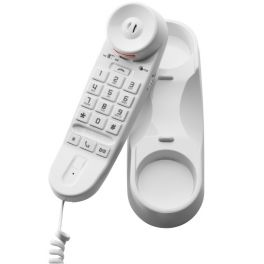
Depaepe Premium 20 Analogue Phone (White)
IN STOCK4.5 of 14 Reviews£22.00£15.99 -27% £19.19 Incl. VATRef: DEPREM20Compare -
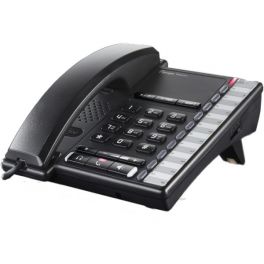
Depaepe Premium 200 Analogue Desktop Phone (Black)
IN STOCK4.2 of 4 Reviews£30.00£21.99 -27% £26.39 Incl. VATRef: DEPREM200Compare -
Ref: SIDESK400BECompare
-
Ref: DEHD21IVCompare
-
Ref: DEHD6RCompare
-
Ref: DEPREM100BCompare
-

Depaepe HD2000 Urgence 2 Memory - Red
IN STOCK5 of 1 Reviews£216.00£161.99 -25% £194.39 Incl. VATRef: DEHD22RCompare -
Ref: KET42NCompare
-
Ref: AA6730ACompare
-
Ref: ALT10IVCompare
-
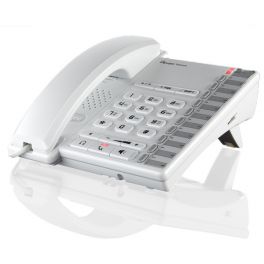
Depaepe Premium 200 Analogue Desktop Phone (White)
IN STOCK4.7 of 4 Reviews£30.00£21.99 -27% £26.39 Incl. VATRef: DEPREM200BCompare -
IconBest Seller
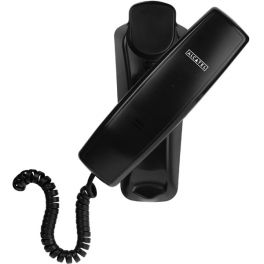
Alcatel Temporis 10 Black Analogue Phone
Call us for availability4.7 of 46 Reviews£17.99£14.99 £17.99 Incl. VATRef: ALT10NCompare -
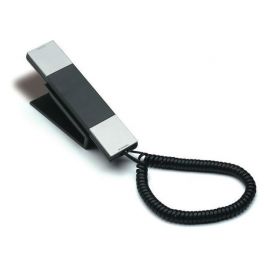
Jacob Jensen HT20 - Silver
Call us for availability4.7 of 4 Reviews£64.99£53.99 -17% £64.79 Incl. VATRef: JJ1Compare -
IconBest Seller
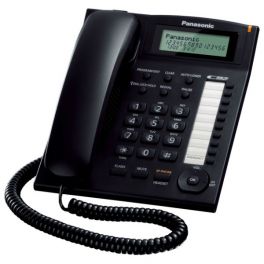
Panasonic KX-TS880 (Black)
Call us for availability4.5 of 27 Reviews£38.99 £46.79 Incl. VATRef: PA880ECompare -
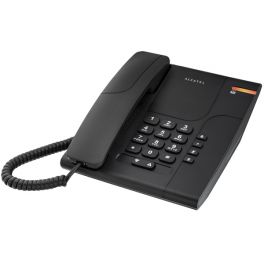
Alcatel Temporis 180 - Black
Call us for availability4.4 of 67 Reviews£25.00£19.99 -20% £23.99 Incl. VATRef: ALT180Compare -
Ref: DM312CSCompare
-
Ref: KET41NCompare
Discover the Versatility of Analog Telephones
In a world dominated by digital communication, the charm and reliability of analog telephones, also known as traditional landline phones or PSTN phones, still hold a vital place in business communications. These devices offer consistent performance, ease of use, and a sense of nostalgia that many businesses still appreciate. In this article, we will explore the numerous benefits of incorporating analog telephones into your communication toolkit, address common questions, and help you understand why these devices are still relevant today.
Exploring the Benefits of Using Analog Telephones
- Reliability: Analog phones are less prone to outages and interruptions compared to their digital counterparts, ensuring consistent communication.
- Ease of Use: With a straightforward design and intuitive functionality, these phones require minimal training, making them ideal for users of all ages.
- Cost-Effective: Typically, traditional landline phones come with lower upfront costs and maintenance expenses, making them a budget-friendly choice for businesses.
- Quality Sound: Analog telephones provide clear audio quality, which is essential for effective communication in professional settings.
- Power Independence: Unlike VoIP phones, PSTN phones do not rely on internet connectivity, making them operational even in power outages.
- Durability: Built to last, analog phones often feature rugged designs that withstand wear and tear in busy office environments.
- Integration with Existing Systems: These phones can easily integrate with traditional PBX systems, allowing seamless communication within established networks.
- Privacy: Analog lines can offer enhanced privacy as they are less susceptible to hacking compared to internet-based communication systems.
- Familiarity: Many users find comfort in the tactile experience of a traditional landline phone, fostering a sense of reliability and trust.
FAQs
- What are the key features of an analog telephone? Most analog phones come with features like caller ID, speakerphone capabilities, and adjustable ringer volume, making them versatile for any office setup.
- Are analog phones still relevant in today's digital age? Yes, many businesses still rely on analog telephones for their reliability, ease of use, and independence from internet disruptions.
- How do I choose the right analog phone for my business? Consider factors such as the size of your business, the required features, and your budget. It's also useful to think about whether you need any specific integrations with existing communication systems.
- Can I use an analog phone with a VoIP system? Yes, with the right adapters, you can connect analog telephones to VoIP systems, allowing you to maintain your existing devices while utilizing modern technology.
- What maintenance do analog phones require? Generally, analog phones require minimal maintenance. Regularly check the cords for wear and ensure the device is clean to keep it functioning well.
